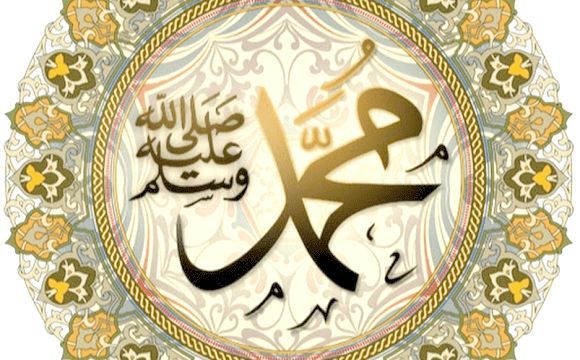Nazrana Shaikh
It is a great misunderstanding among the law makers and also the people that Muslims and Muslim women in particular are safe and secured under the Uniform civil code as practiced in Goa. Attempts are also made to set its example for implementation in rest of the country without proper analyzing the cases which were and are under trial.
Cases of marriage and divorce:
As per the UCC law the registration of marriage is made mandatory so that the marriage is recognized by the law and any issues relating to the marriage can be resolved through law. It seems justified to many that this is good for the benefit of the couple and specially women for it will be difficult to break the tie of marriage or at least if it does it would be easy to claim for their rights under law specially for the woman. But as it is said that all that glitters is not gold so is the case here. The difficulties which this law brings to the Muslims can be understood in the following context:
It should be noted that the Muslims, consider the marriage to be valid when followed as per the religious norms. In such case if after registration the boy and the girl find themselves not fit for each other or if the marriage is cancelled due to any other reason, they have to approach the court to annul the marriage which takes couple of years meanwhile they cannot marry elsewhere.
In case of husband wife disputes if the counseling goes beyond the first year of marriage they cannot separate before they complete 5 years and have to bear each other willingly or unwillingly and then after 5years the case of divorce will be dragged with counter accusations and by the time they get divorce it is too late for both of them. The small amount of compensation received at the end cannot compensate with the loss of dignity, time, efforts, money and emotional torture that the couple has to bear during this time. Still there are divorce cases dragging for years and into a decade and more.
Even if the law does not grant divorce to the couple and forces the partners to live together it cannot create the love and understanding among husband and wife which is the foundation for a happy family. Children are the worst sufferers in this case. This makes them insecure, worried, and harms their ability to have a successful marriage later on in life.
A loveless marriage makes an individual whether man or woman stressed in life and he/she cannot live peacefully as an active member of the society. This stressful situation sometimes leads to suicide cases.
Those who get married with the selfish motives of hiring the assets of their partners and later on want to discontinue with the marriage without proving themselves as guilty in the court adopt the means of torturing the partner in such a way that the other partner takes the lead in court proceedings and begs for a quick divorce without bothering to sacrifice whatsoever for it, thus turning the case in favor of the culprit. If this does not become possible such untrustworthy and disloyal partners even tend to domestic violence or murder of the partners framing it to be an accident like we have the cases of burning the wives in cylinder blasts.
Genuine problem arises in case where the woman is religious and is strict follower of her religion in such a case she sticks to the law laid down by her religion and consider that to be full and final. The uniform civil code then becomes a hurdle to her for a better life. For example the case of verbal talak which is not considered valid UCC leaves the woman isolated since now she cannot live with her husband as prescribed in her religion nor can she marry again since she is not divorced as per civil code law.
Last but not the least it is been observed that after dragging the case for many years in the court, the matter is finally decided to settle out of court by mutual understanding or through paralegal services, which again fail to give complete justice to the victim.
Ban on Polygamy:
Polygamy though not practiced by a large number of Muslims, with an exception of few, is banned considering it to be a great injustice to the woman who has to bear the pain of sharing her husband with other woman. But this has not solved the problem of wives and has opened up ways of more violence/injustice against women.
Those men who are inclined to having relationships with more than one woman are still engaged in it and with a greater freedom since they are relieved from the burden of giving them legal status of wife with due rights thus making the women objects of use and throw with no respect to their feelings, emotions, needs and honor. Such relationships have also increased the number of illegitimate children thus destroying the social structure.
Ban on polygamy has taken away the right of a chronically ill and sexually disinterested woman to be in wedlock of a husband who due to these reasons undergoes a second marriage maintaining the love, emotion, physical and financial support to his first wife. Due to this law either the husband has to satisfy his basic human need through illicit relationship spoiling the life of some other woman or divorce his sick, helpless wife and get married to someone else.
It also brings hurdle for young widows and divorcees with small kids to settle in their life who can be a choice of a married man as no bachelors prefer to get married to such women and as also due to the shortage of widowed and divorced men to be a perfect match for such women.
Inheritance law
Though there are equal rights for both men and women as per the civil code it fails to bring about any change in the percentage of property held by women nor in their status. It is not common that daughters fight for their share of the parental property. Even if they do, the law, in trying to give equal share, fails to even give them little. Also fighting for the property rights she incurs loss of her own assets and her cherished family relations.
The common misconceptions about the Uniform Civil Code is that the Hindus have surrendered their personal laws for the sake of uniformity throughout the country and the four Hindu enactments made in 1955-56 have rectified all the evils of Hindu’s laws associated with the gender justice. Going through the four Hindu-Law enactment of 1955-56 one finds that specific provisions relating to the customs of Hindus, Buddhists, Jains and Sikhs, running counter to general statutory provisions, enjoy full legal protection under the provisions of the concerned Uniform Civil Code. Among the customs and customary institutions that remained so protected are as follows:
(i). Prohibited degrees in marriage and sapinda relations (Hindu Marriage Act, 1955, sec. 5);
(ii). Marraige-rites and ceremonies (sec. 7);
(iii). Right to obtain divorce without proper Judicial proceedings” (sec. 291);
(iv). Adoption of adult and married persons (Hindu Adoption and Maintenance Act, 1956, sec. 10);
(v). Mitakshara Coparcenary Property (Hindu Succession Act,39 1956, sec. 6);
(vi). Joint family properties governed by Marumakkattayam nambudh and Ahyasandantana customs (sec. 7);
(vii). Properties held by Sthanamandans; and
(viii). Specified impartible estates(sec. 5(ii))
We can see the effect of these customs usages being maintained in Goa civil code too which allows the following
- i) Limited polygamy has been allowed to Hindus and bigamy has been recognised to have civil effects.
- ii) There are inequalities on issues of adoption and the rights of illegitimate children
iii) When it comes to taking an oath in court, differences on the basis of caste have been accepted.
- iv) Also there is no separation of the Church from the State. In the case of those who opt to solemnize their marriage in church, the Church can annul the marriage at the instance of one of the parties, as is laid down in church law.
Hence at one side where the personal laws of other religions are well secured under uniform civil code it is not so for Muslims. In addition often Muslim Personal Law is shown as defective and discriminatory and is believed to be blocking the implementation of directive of Article 44 of Indian Constitution. The protagonist of uniform civil code project the issue in such a manner that the minorities, especially the Muslims, feel that it is they who will have to sacrifice their personal law for the sake of Uniform Civil Code.
Also whenever Muslim Personal Law is debated it lacks intellectual impartiality. Media reportage, academic analysis and often politician’s view points reflect the vested interests of those concerned. Despite of all this, the muslims are silent because they have greater level of patience and tolerance and suffer silently.
















